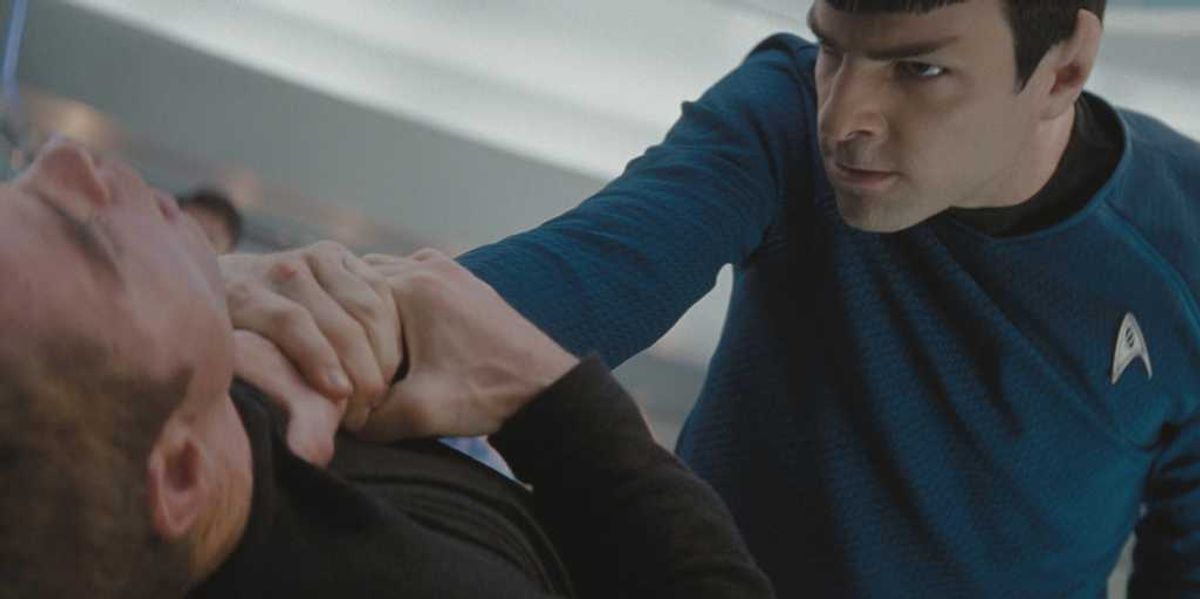 Forget the so-called fourth wall of fandom: It no longer exists. Actors, writers and directors are only a tweet away, and people working on major geek-culture franchises are actively encouraged to engage with fans.
Forget the so-called fourth wall of fandom: It no longer exists. Actors, writers and directors are only a tweet away, and people working on major geek-culture franchises are actively encouraged to engage with fans.
Sometimes, fandom strikes gold with a genuinely nerdy celebrity who really knows how to use social media, like George Takei, Kristen Bell or Nathan Fillion. But most of the time we’re content with a few publicity appearances on Reddit, or a sporadically entertaining Twitter presence. It doesn’t take much.
Either way, it seems like a no-brainer to suggest that when engaging with your fans online, you probably shouldn’t actively insult them. For example, don’t log on to a popular fansite and start posting comments describing other readers as “shitty fans” and telling them to “f*ck off”.
Unfortunately, that’s exactly what Star Trek writer Bob Orci just did.
On September 1, popular Star Trek fansite TrekMovie.com published an editorial titled “Star Trek is broken—Here are ideas on how to fix it.” The article focuses on this year’s Star Trek Into Darkness, which was a moderate box office success but failed to impress most old-school fans. In fact, while the 2009 reboot is still very popular, Into Darkness was recently voted the fandom’s least favorite movie at a Star Trek convention, with Wrath of Khan topping the poll.
Orci (writing as “boborci”, a screenname that has been confirmed as real by TrekMovie.com moderator Matt Wright), first responded with this comment:
“I think the article above is akin to a child acting out against his parents. Makes it tough for some to listen, but since I am a loving parent, I read these comments without anger or resentment, no matter how misguided.
Having said that, two biggest Star Treks in a row with best reviews is hardly a description of “broken.” And frankly, your tone and attidude make it hard for me to listen to what might otherwise be decent notions to pursue in the future. As I love to say, there is a reason why I get to write the movies, and you don’t.”
A little passive-aggressive, but not too bad. Sadly, he didn’t leave it at that, instead going through the comments section responding to fans who criticised Into Darkness—including challenging one person to pitch him a better movie idea. In response to someone who (politely) compared Into Darkness with Raiders of the Lost Arc, Orci wrote:
“STID has infinetly more social commentary than Raiders in every Universe, and I say that with Harrison Ford being a friend. You lose credibility big time when you don’t honestly engage with the FUCKING WRITER OF THE MOVIE ASKING YOU AN HONEST QUESTION. You prove the cliche of shitty fans. And rude in the process. So, as Simon Pegg would say: FUCK OFF!”
Sci-fi fans can be a conservative lot, and major franchise reboots are usually met with a certain amount of trepidation. But while 2009’s Star Trek passed the first hurdle by receiving positive feedback from old-school fans and newcomers alike, Into Darkness was nowhere near as well-received. In fact, TrekMovie.com’s “Star Trek is broken” article was making a point that many fans have been discussing for months: that the latest movie betrayed the show’s original message. By concentrating on explosions to the detriment of characterisation, and excluding women and minorities from the cast, Into Darkness was arguably a lot less groundbreaking than Star Trek was in the 1960s.

Star Trek is not a democracy. While the franchise may, in the spiritual sense, “belong to the fans,” the people in control are JJ Abrams, Bob Orci, and his co-writers. However, it’s not unfair for fans to criticize or complain when the franchise seems to be dumbing down or moving away from the original ethos of the series. Orci’s repeated assertions that he “listens” to fans seem meaningless when the end result is a movie that inspired widespread disappointment among its intended audience. Particularly when “listening” also seems to be accompanied by cursing, insults, and taunts like “This is why I get to write the movies, and you don’t.”
Right now, it seems as if Star Trek’s current writers did listen to the fans, then promptly ignored or forgot what they heard. While Into Darkness was not a critical failure, resentment among the franchise’s core fanbase has grown, and that’s partly thanks to PR mistakes like J.J. Abrams saying that he disliked the original show because it was “too philosophical,” or co-writer Damon Lindelof admitting that the notoriously pointless Alice Eve underwear scene in Into Darkness was gratuitous. Or the recent DVD release being described as a ripoff. Or Bob Orci taking a couple of hours out of his schedule to read through message board comments and yell at fans for criticising his multimillion-dollar movie.
In itself, the comments section of TrekMovie.com is not a big deal. Most people who bought a ticket for the movie don’t know or care about what Bob Orci says on the internet, but incidents like this are representative of an ever-growing divide between Star Trek’s current writers and an increasingly rebellious fanbase.
Looking at Orci’s definition of “listening,” it seems like he’s falling foul of a problem faced by many an angry internet commenter. He’s listening just long enough to hear that someone is annoyed with him, and responding with anger and defensiveness rather than actually paying attention to what they have to say.

Shares